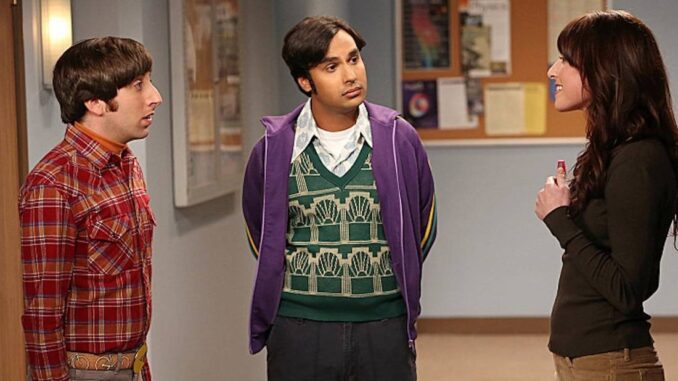
There’s one episode from The Big Bang Theory’s sixth season that seems to encapsulate everything about the show that so-called “nerd” purists found grating — and it’s all about how the writers treat geek culture as a punchline.
First, let’s set the scene. By season six, The Big Bang Theory had fully embraced its formula: nerdy scientists who are socially awkward, led by the eccentric but lovable Sheldon Cooper, get into sitcom shenanigans, often due to misunderstandings or awkward romantic entanglements. While the show found massive popularity with general audiences, this formula increasingly alienated hardcore fans of actual geek communities.
The episode in question hinges on the idea that the characters’ intelligence is always juxtaposed with their social incompetence, making them feel like “losers” who deserve mockery. In the process, real scientific interests, fandoms, and hobbies—comics, video games, sci-fi—are turned into cringe-worthy caricatures rather than legitimate passions. The humor becomes less about the characters and more about laughing at them because they are nerds.
One specific moment stands out: when the characters’ knowledge and excitement over sci-fi or scientific topics become fodder for punchlines, the show undercuts their genuine enthusiasm. Instead of celebrating their passions, the narrative frames them as oddities—something to be joked about, rather than something to be respected. This sends a message that being a nerd is inherently awkward or socially unacceptable, unless you’re ready to be ridiculed for it.
Interestingly, The Big Bang Theory seems aware of this tension, but often chooses to lean into the ridicule anyway. Episodes will feature debates about nerd culture, fan conventions, and cosplay, but they’re frequently treated as side jokes or obstacles, rather than sincere explorations of fan communities. The series rarely gives any weight to how these hobbies actually bring people joy or foster real communities, opting instead to reduce them to punchlines in service of sitcom beats.
The core issue, then, is tone. The show wants you to root for its characters, but it also gleefully mocks their deepest interests. That conflict creates a dissonance: are we celebrating their quirks, or laughing at them? For many viewers who actually are nerds—people who love comic books, video games, or science fiction—the show’s answer feels very clear: it’s the latter.
In the end, this episode—and what it represents—could be seen as a moment when The Big Bang Theory pivots decisively from being a show about nerds to a show mocking nerds. Understanding that shift helps explain why The Big Bang Theory, despite its popularity, remains deeply divisive within geek circles. It’s not that fans dislike the characters or the actors—it’s the message the show sends about who nerds are, and whether being one is something to be proud of or something to be laughed at.